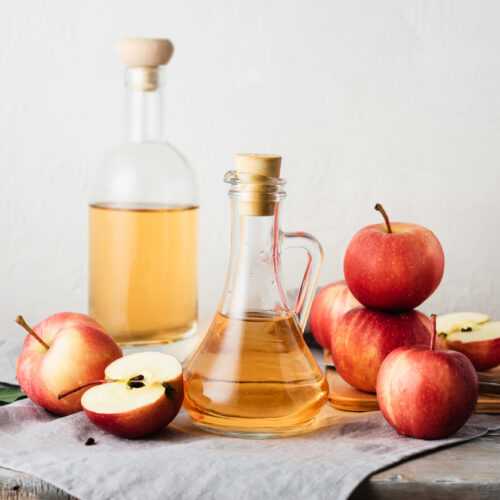
If you’ve decided to take the step to help protect yourself and your community by getting vaccinated against COVID-19, there are a number of ways you can prepare to make the experience as undaunting as possible.
1. Check your eligibility. It is unlikely you will not be eligible for a vaccine. The World Health Organization says COVID-19 vaccines are safe for most people aged over 18 years including those with pre-existing and auto-immune conditions. The Pfizer/BionTech vaccine has also been deemed safe for people aged 12 and over. Depending on the system in your country, you may need to book an appointment or there may be drop-in or drive-through centres available.
2. Be prepared. When you go to get your vaccine, bring a mask and some hand sanitiser. In many cases, these will be supplied at the vaccination venue but it’s a good idea to have them in case there are crowds prior to entering the venue. Wear clothing that makes it easy for the vaccinator to access the injection site, eg, a loose T’shirt with sleeves that can be easily lifted to reveal your shoulder. If you have an appointment, you may have been given a code or similar. Bring that along. In New Zealand, bringing your NHI number, if you know it, is also a good idea. If you don’t have any of these things, bringing ID will help the staff find you on their system.
3. If you’re anxious, bring a support person and, if you’re comfortable to, let the staff know you have anxiety. A lot of people are anxious about getting a jab, so staff know how to handle that. Practising some breathing exercises can help reduce your nervousness. Try inhaling to a count of four, holding your breath for another four-count, then exhaling to a count of eight. Repeat for six cycles. If you don’t like breathing exercises, naming five things you can see, then four, then three, two and, finally, one, can help ground you.
4. What to expect. Depending on the set-up of the venue, you may have to line up, physically distanced. At reception you will be asked for your details and your appointment confirmation, if you have one. They will check whether you have any symptoms, have been at a location of interest or have had a recent COVID test. Then, you may be given a fresh mask and some hand sanitiser to use. The next step may be to talk to another person and supply them with your name and date of birth. In New Zealand, if you don’t have an appointment, they may ask for your NHI number or, if you don’t have it and you’re not on the system, your ID. You may be asked again if you have symptoms of COVID. Then you will be able to go to a booth to get your shot. The vaccinator will ask you if you’re well, if you have had any reactions to vaccines before and tell you about the common side effects. They’ll usually put the shot in the arm you tend to use least.
5. Is it painful? Most people say the jab doesn’t hurt. Reports range from a slight pinch to feeling nothing at all. But some people say they have a sore, achy or heavy arm afterward. If the site of your jab hurts, you can put a cold compress on it, but don’t rub the area.
6. Can I take painkillers? It’s not recommended to take painkillers, such as paracetamol, prior to the jab but, if you experience a sore arm, achiness, fever or headache afterward, it is considered safe to take it then.
7. What are the most common side effects? Not everyone will experience side effects, but the most common ones are:
- Arm soreness
- Mild fever
- Tiredness
- Headaches
- Muscle or joint aches
8. What happens after the jab? Once your jab is complete, you’ll be asked to wait in a socially-distanced waiting area for around 15 minutes. This is normal for most vaccines and is a safety precaution in case a person has a reaction.
9. Aftercare. Once you’ve had your jab, make sure you drink plenty of water and don’t forget to eat regular, nourishing meals. Be extra kind to yourself, rest and relax. You deserve it, for taking one for the team!
10. Second jab. For double-dose vaccines, such as the Pfizer and AtraZeneca versions, make sure you get your second jab, ideally six weeks but no less than three weeks later. The Delta variant of COVID is particularly wily and you really need that second jab for best protection. It usually takes two weeks after vaccination for a good immune response to kick in.
11. Will life go back to normal after being vaccinated? COVID vaccines help reduce the transmissibility of COVID and the likelihood you’ll have severe symptoms or need hospitalisation. They, like most vaccines, don’t provide 100 per cent protection, so make sure you continue wearing a mask in places where physical distancing isn’t possible, wash or sanitise your hands regularly and cover your coughs and sneezes.
Article sources and references
- World Health Organization. COVID-19 advice for the public: Getting vaccinated. Accessed September 2021https://www.who.int/emergencies/diseases/novel-coronavirus-2019/covid-19-vaccines/advice
- Healthcare New Zealand. Preparing for the COVID-19 Vaccination. Accessed September 2021https://www.healthcarenz.co.nz/service/explore-specialist-advice/preparing-for-the-covid-19-vaccination/
- World Health Organization. Episode #23 - I am vaccinated, what next? Accessed September 2021https://www.who.int/emergencies/diseases/novel-coronavirus-2019/media-resources/science-in-5/episode-23---i-am-vaccinated-what-next?
- Centers for Disease Control. Possible Side Effects After Getting a COVID-19 Vaccine. Accessed September 2021https://www.cdc.gov/coronavirus/2019-ncov/vaccines/expect/after.html
www.healthyfood.com










